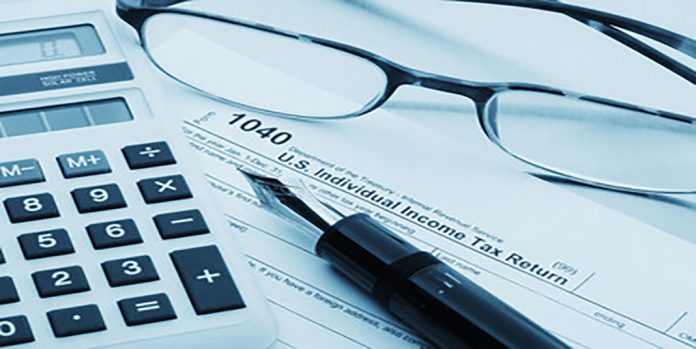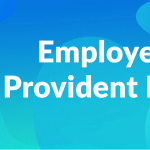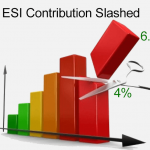There are various types of welfare schemes, some Statutory & some Voluntary viz Provident Funds, Gratuity Funds, Superannuation Funds, etc. which are to protect and enhance the welfare, protection of employees for their retirements or untimely death of employees. Companies carry an onerous obligation of compliance under these regulatory frameworks. This article attempts to detail the Income Tax implications of any delays in remitting the Employers and/or Employees contributions to the respective Statutory Authorities as distinct from the interest, penal or criminal exposures under the respective labour enactments.
Three Risks
Businesses require to contribute say 12% of the Basic Salary in the case of PF as Employers contribution. The Employee may make a matching contribution of 12% of his salary, which is Employee Contribution. The Employee contribution typically is a Salary cost in the books of accounts of a business being recovered from his salary. While Employers contribution is shown separately as an additional expense as such in the Profit & Loss account of the company. The responsibility of an employer as regards the Employee Contribution is very onerous and fiduciary in nature. Any delay in such payments to the authorities exposes the employer to THREE risks.
A). An applicable action under the respective labour Law which may either be interest, penalty or criminal action.
B). Failure to pay Employee Contribution under the Income-tax Act gets deemed as an additional Income on which the Tax liability gets determined.
C). Even in the event of the Employer making the payment post the prescribed period, such delayed employee contributions do not get recognized as eligible business expenses even in the years of payment.
Illustration
A simple illustration would explain the issue. For e.g, A Company has 20 employees with a total Gross Basic salary of Rs 2 lacs a month. Employee and Employer PF contribution being Rs. 24,000/- each would aggregate to Rs 48,000/-. Now for the month of February 2011, the company is expected to make a payment of Rs 48,000/- on or before March 15th, 2011 with the PF dept with a grace period of 5 days hence the outer time limit being March 20th, 2011. Should the company pay the contributions on March 25th, 2011? Even this 5-day delay has serious tax implications as explained in the following paragraphs. Click Income Tax on Salaries Budget Impact for FY 2013-14
Deemed Taxable Income
For the purpose of computation of business income under Income Tax Act, 1956, Income includes any sum received by the assessee from his employees as contributions to any provident fund or superannuation fund or any fund set up under the provisions of the Employees’ State Insurance Act, 1948, or any other fund for the welfare of such employees (Sec. 2 (24)(x)); Deduction of Employee PF Contribution tantamount to the assessee receiving monies from his employees.
Hence, any sum received by an employer from his employees as employees’ contribution to the following is treated as “Income” of the employer for the purpose of computation of business income:
1. Employees’ contribution to any provident fund (recognized or unrecognized)
2. Employees’ contribution to a superannuation fund
3. Employees’ contribution to any fund set up under the provisions of the Employees’ State Insurance Act, 1948
4. Employees’ contribution to any other fund for the welfare of employees.
Thus in the given example, the employee’s contribution to PF of Rs.24,000 would be assumed as deemed income under Sec.2(24)(x) of the Income Tax Act and has a tax liability. Deduction in respect of the above ‘Income’ received by the employer is allowed only if such sum is credited by the employer to the employee’s account in the relevant fund on or before the ‘due date’ (Sec.36(1)(VA).
Notwithstanding
If the remittance of employees’ contribution to provident fund is not made within ‘due date’, the deduction under sec.36(1)(VA) is not available even if-
1. salary is actually paid to employees before the ‘due date’, or
2. employees’ contribution to provident fund is paid within the previous year;
3. employer’s contribution to provident fund is deductible under sec.43B on the basis of payment made on or before the due date of submission of return of income For the purpose of Sec.36(1)(VA), ‘due date’ means the date by which the assessee is required, as an employer, to credit such contribution to the employee’s account in the relevant fund under the provisions of any law or term of contract of service or otherwise. If such contribution is paid by the due date but within the grace period, the same will be deemed to have been paid within due date.
In the above example, the deduction for payment of Rs.24,000 would not be allowed since the payment was to have been made before 20th March 2011 and therefore not met the conditions of Sec.36(1)(VA).
Hence, this would increase the business income of the Company by Rs.24,000 and the company would be required to pay taxes at 30.9%, equivalent to Rs.7,416 on the delayed payment of employees contribution to PF.
Employer’s contribution is welfare schemes and allowed as expenses underSec.43B of Income Tax Act and these contributions are allowed as expenses if such payments are made before filing the income tax returns or in the year in which such payments are made to the department. Hence, the tax liability would increase if the employer’s contribution is not made before filing IT return but deduction would be given in the year of payment, which results in a cash flow issue as for as tax payments are concerned. It may be noted that this benefit is not available for employee’s contribution to provident fund, where the deduction is not available even if the payment made after the due date.
It can be concluded that in order to avoid higher tax liability on employees contribution to welfare funds, great care should be taken at least for payment of employees’ contribution to PF, ESI, Superannuation fund or any other staff welfare schemes within due date. Else not only being a defaulter, but you would also end up paying higher taxes as well.
Also read, CBDT facilitates seamless tax payment; notifies simplified ITR form






